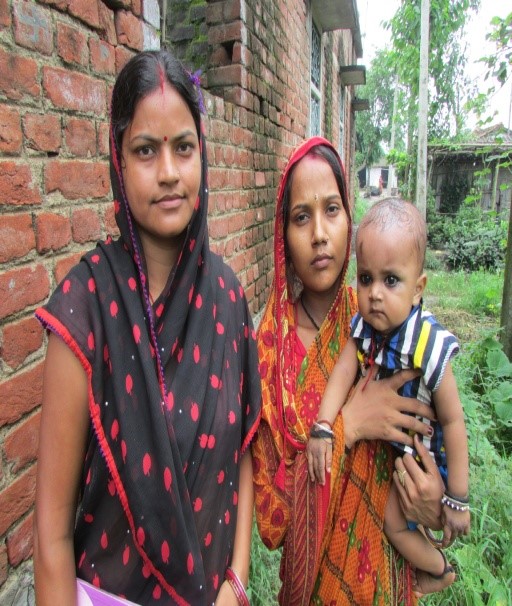HEALTH

Born on November 30, 2015, Happy Anand’s story is one of survival, reiterating the importance of front line health workers, and first responders in remote villages still struggling with access to healthcare.
The family residing in Baijnathpur village, Sourbzar Block, Saharsa, Bihar faced an extremely challenging time a few months ago, when Happy started showing the first signs of neonatal sepsis.
Happy was Anil Sharma and Jyoti Rani’s first child and their happiness knew no bounds when he was born. Their joy however, was short-lived, as after 13 days of happy being born, Jyoti started to notice big boils/pustules erupting on his body. The boils soon spread to the entire body, and he developed fever along with signs of increased lethargy.
A carpenter by profession, Anil was distraught when his wife told him about Happy’s condition. The couple decided to not waste any time, and immediately decided to meet with a private doctor. However, after spending an entire day at the Doctor’s clinic, they returned disappointed as they never got their turn to meet the doctor.
Thankfully, they recalled some lessons from a few counselling sessions on ‘neonatal sepsis’ that they had attended in the village sometime back. The village’s designated ASHA worker– Monika Rani had counselled parents in the community, post her training on the subject as a part of CARE India’s innovative pilot project on “community based identification, referral and management of neonatal infection.”
Following Monika’s advice from the counselling sessions, the couple contacted her immediately to examine the infection. When Monika visited Happy, she informed the parents about a seven-day treatment devised for such babies by the government, which was available free of cost at all Public Health Centres (PHC). She advised the parents to take Happy at the local PHC at the earliest possible.
Monika helped in getting Happy registered as an OPD patient for Sepsis on December 15,2016 at the PHC. In addition, she accompanied the parents on each visit to the health centre, throughout the one-week span of the treatment.
Under the medical supervision of Dr K. B. Chaurasia and active services of ANMs – Renu Sinha and Monika Marandi, the baby was put on Gentamicin Injection and Oral Amoxicillin syrup. Dr. Gaurab Kumar. Block Coordinator-Sepsis Innovation, CARE India also supported the activity and closely monitored the medication’s dosage as per Happy’s body weight, under the Gentamicin Guidelines laid out by the Government.
Once his condition improved, Happy’s parents were thankful for all the facilities available under the treatment. They were also glad for the continued support by ASHA-Monika Rani, working ANMs, daily visiting physicians and CARE India team working on the pilot project in the area. sAnil and his wife Jyoti have since then, shared their experience with other families in the community, encouraging all parents with sick babies, to connect with the village ASHA member and seek timely help.
About the initiative:
There are an estimated 900,000 newborn deaths annually in India, representing the highest burden of any country in the world. Infection is the leading direct cause of newborn mortality in India, accounting for 29% or 260,000 annual newborn deaths. CARE India is implementing innovative community-based identification and management of serious newborn infections (e.g. sepsis, pneumonia). Front-line workers (FLWs) have been trained to assess newborns and recognize clinical signs of sepsis/pneumonia, and to follow clinical algorithms to provide treatment and/or referral to Primary health centers.




